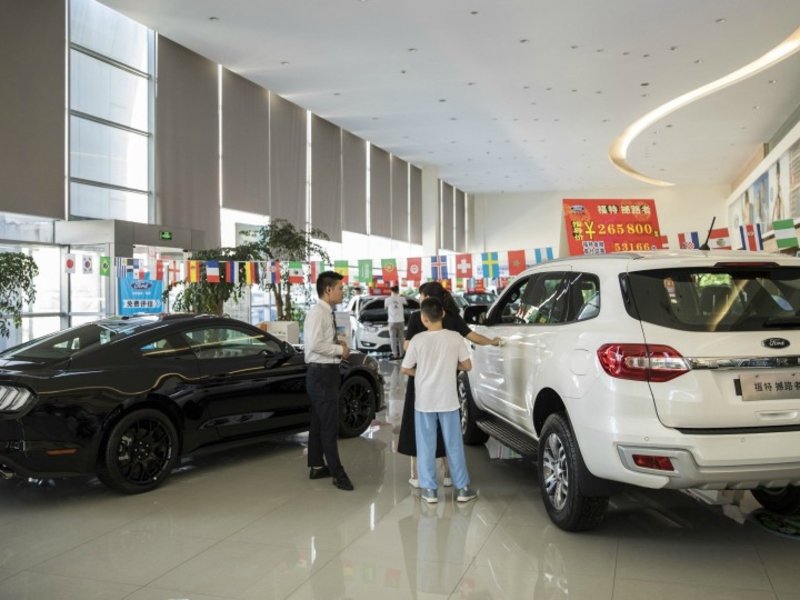
BEIJING — China’s car sales had the biggest monthly plunge on record as the coronavirus kept shoppers away, intensifying the pressure on automakers already battling an unprecedented slump before the outbreak.
Sales fell 80 percent in February, the China Passenger Car Association said on Wednesday, without giving a full sales figure for the month. Average daily sales improved toward the end of the month compared with the first three weeks.
“Dealers returned to work gradually in the first three weeks of February and their showroom traffic is very low,” CPCA said, adding it expects February’s sales drop will be the steepest of this year.
Toyota, the first major global automaker to report its February sales in China, said it sold 23,800 Toyota and premium Lexus cars last month, down by 70 percent from a year earlier.
General Motors said the industry will face “serious challenges” in the first quarter, but anticipates the situation will ease in the second quarter, its China president Matt Tsien said in a post on GM’s official WeChat account. GM hopes China’s auto sales will report year-on-year growth in the second half of this year, Tsien said.
BMW and Daimler’s Mercedes-Benz brand both expect to take a big sales hit in September and are working on plans to recover lost volume.
The coronavirus outbreak has paralyzed the industry just as it was looking to gradually halt a two-year decline in Chinese sales, with automakers now left with little visibility into when sales might recover.
Automakers have poured billions of dollars into the world’s largest car market over the past decades in a bet on its growth potential.
Everyone from market leader Volkswagen Group and electric-car maker Tesla to smaller local contenders have been affected as the spreading outbreak hit both demand and production.
Wholesales from automakers to dealerships probably plunged 86 percent in February, CPCA said.
Millions of companies in China are in peril as consumers stay home and output at factories remains disrupted. Activity in the country’s manufacturing sector contracted sharply in February, with the official gauge plunging to the lowest level on record.
Even though the central government has stressed the car industry’s importance, it has yet to unveil fresh support measures. Local authorities, which are running against the clock to meet annual economic goals, have started to put in place their own incentive plans to stimulate demand.
The southern city of Foshan this month began providing rebates of as much as 3,000 yuan ($430) to car buyers. Guangzhou’s municipal government will give 10,000 yuan to new-energy vehicle buyers while a development zone in the city of Xiangtan, Hunan province, started offering 3,000 yuan ($1,437) to those purchasing locally made Geely vehicles.
With a slowing economy and widening fiscal gap, the central government has limited options to spur car sales. The probable choices include reducing the 10 percent car-purchase tax, easing congestion-related purchase bans and offering incentives for rural residents to buy new-energy vehicles, according to Cui Dongshu, CPCA secretary general.
Reuters contributed to this report